Famous People with Vertigo: How Celebrities Cope with This Disorienting Condition
Vertigo, the unsettling sensation of spinning or that the world around you is spinning, can strike anyone at any time. This often debilitating condition affects millions worldwide, including some well-known celebrities. In this article, we’ll explore the experiences of famous people with vertigo and how they’ve managed to cope with and treat their symptoms.
Janet Jackson: Postponing Shows Due to Vertigo

Image Source: FoxBusiness
In 2008, pop icon Janet Jackson made headlines when she had to postpone nine shows due to severe vertigo caused by migraine headaches. The singer experienced classic vertigo symptoms, including dizziness and imbalance, which made it impossible for her to perform.
Jackson’s experience sheds light on a specific type of vertigo called vestibular migraine. This condition is characterized by episodes of vertigo, dizziness, and balance problems associated with migraine headaches. Vestibular migraines can be particularly challenging for performers like Jackson, as the symptoms can be unpredictable and severely impact their ability to take the stage.
LeBron James: Benign Paroxysmal Positional Vertigo (BPPV)
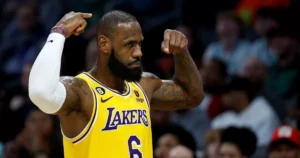
Image Source: Olympics
NBA superstar LeBron James has been open about his struggles with benign paroxysmal positional vertigo (BPPV). BPPV is the most common cause of vertigo and occurs when tiny calcium crystals become dislodged in the inner ear, causing brief but intense episodes of dizziness triggered by head movements.
James has faced criticism for appearing to fall or “flop” on the court, but he attributes this to his BPPV. “I just wish people understood the illness that I have, and not rush to judge LeBron James so quickly,” he stated. His experience highlights the importance of understanding and empathy for those dealing with vertigo, as the symptoms can be easily misinterpreted by others.
Mark Cuban: Virtual Reality Treatment for Vertigo
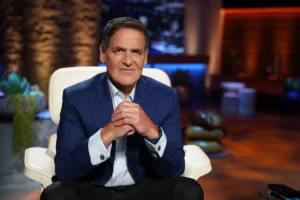
Image Source: CNCB
Entrepreneur and “Shark Tank” star Mark Cuban has been vocal about his battle with a mysterious condition that left him with severe dizziness and brain fog. After months of searching for answers, Cuban was diagnosed with a damaged otolith, a structure in the inner ear responsible for sensing gravity and movement.
Cuban underwent treatment using a specialized rotary chair and eye-tracking technology, which helped retrain his brain to process balance information correctly. When he couldn’t access the equipment at home, Cuban innovated his own virtual reality-based treatment using VR goggles and his smartphone.
Impressed by the results, Cuban partnered with his doctor to patent the VR treatment program, hoping to make it more widely available to others suffering from similar conditions. His story showcases the potential of emerging technologies in treating vestibular disorders and the importance of persistence in finding effective solutions.
Patrick Stewart: Living with Persistent Vertigo
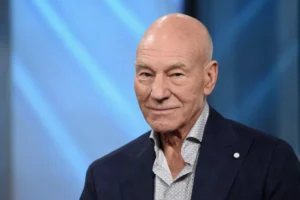
Image Source: Radio Times
Acclaimed actor Patrick Stewart revealed in 2017 that he had been struggling with persistent vertigo for eight months. The “Star Trek” and “X-Men” star described feeling constantly dizzy, with symptoms only subsiding when lying down or driving.
Stewart’s doctors worked to “reprogram” his brain to better process signals from his eyes and ears, highlighting the complex nature of vestibular disorders. Despite the challenges, Stewart continued working on projects like “Logan” while managing his symptoms, demonstrating resilience in the face of vertigo.
Ayushmann Khurrana: Overcoming Vertigo through Meditation
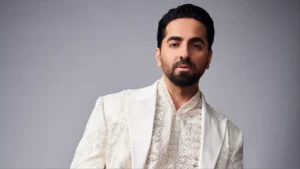
Image Source: Variety
Bollywood actor Ayushmann Khurrana recently opened up about his experience with vertigo, which he developed six years ago. Khurrana’s condition made him anxious while shooting certain sequences for his films, particularly those involving jumping from heights.
To manage his symptoms, Khurrana emphasized the importance of medication and meditation. “If you are really calm inside, then this helps a lot,” he shared, noting that vertigo is a condition that “keeps on coming and going.” His insights underscore the value of a holistic approach to vertigo treatment, combining medical intervention with stress-reduction techniques.
Jordin Sparks: Sleepless Nights and Finding Relief
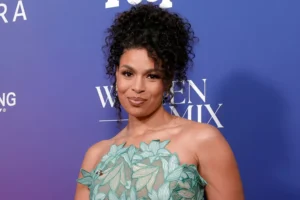
Image Source: People
“American Idol” winner Jordin Sparks has been candid about her struggles with vertigo, which at one point left her unable to sleep for four days. Sparks, who ironically has a song called “Vertigo” about love making her dizzy, took to social media to share her experience and seek support from fans.
While Sparks didn’t disclose specifics about her treatment, her openness about the impact of vertigo on her daily life helps raise awareness about the condition and the importance of seeking help. Many vertigo sufferers find relief through a combination of medications, vestibular rehabilitation, and lifestyle changes.
Coping Strategies and Treatments for Vertigo
As these celebrity stories illustrate, coping with vertigo often requires a multifaceted approach tailored to the individual’s specific needs and underlying causes. Some common strategies and treatments include:
– Medications: Antihistamines, anticholinergics, and benzodiazepines can help manage acute vertigo symptoms. For specific conditions like Meniere’s disease or vestibular migraines, targeted drugs may be prescribed
– Vestibular rehabilitation: Exercises and therapies designed to help the brain adapt to vestibular imbalances can be highly effective in reducing dizziness and improving balance over time.
– Canalith repositioning maneuvers: For BPPV, specific head and body movements like the Epley maneuver can help relocate displaced otoconia crystals in the inner ear.
– Lifestyle modifications: Staying hydrated, managing stress, getting enough sleep, and avoiding triggers like sudden head movements can help prevent or minimize vertigo episodes.
– Emerging treatments: As Mark Cuban’s story highlights, new technologies like virtual reality may offer promising avenues for vertigo treatment in the future.
Raising Awareness and Offering Support
By sharing their experiences, celebrities with vertigo help raise awareness about this often misunderstood condition. Their stories offer comfort and inspiration to others facing similar challenges, reminding them that they are not alone and that effective treatments are available.
If you or someone you know is struggling with vertigo, it’s essential to seek help from a qualified healthcare professional. With proper diagnosis and management, most people with vertigo can find relief from their symptoms and improve their quality of life.
Conclusion
While vertigo can be a debilitating and frightening condition, the experiences of famous people like Janet Jackson, LeBron James, Mark Cuban, Patrick Stewart, Ayushmann Khurrana, and Jordin Sparks offer hope and guidance for those navigating its challenges. By shedding light on their struggles and triumphs, these celebrities contribute to a growing understanding of vertigo and the importance of seeking support and treatment. As awareness continues to grow, more people will be empowered to take control of their vestibular health and find the path to recovery.
